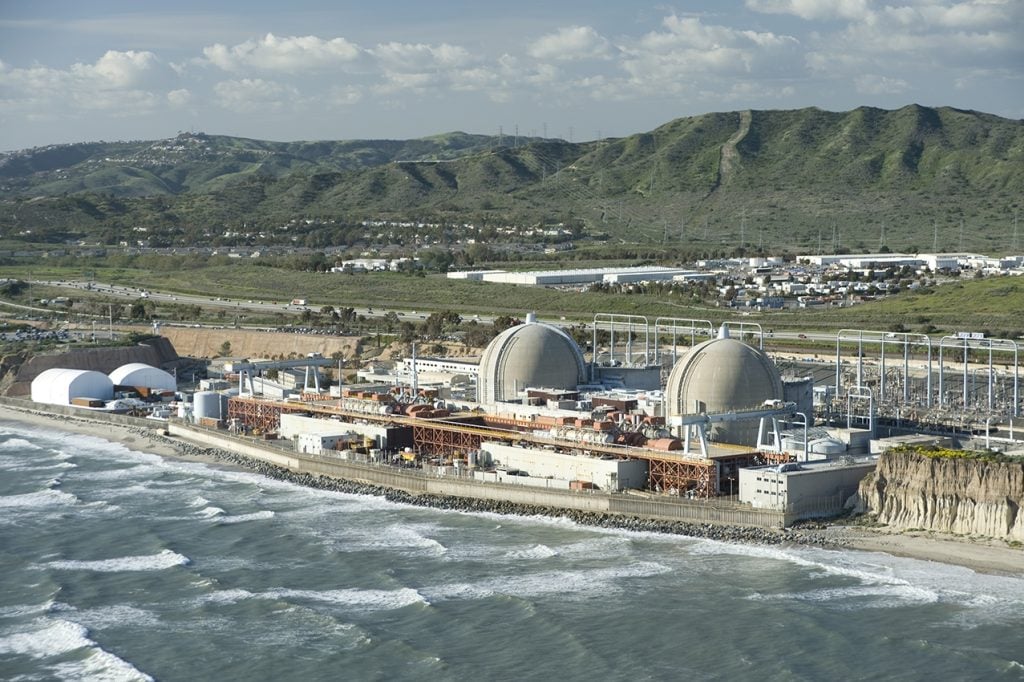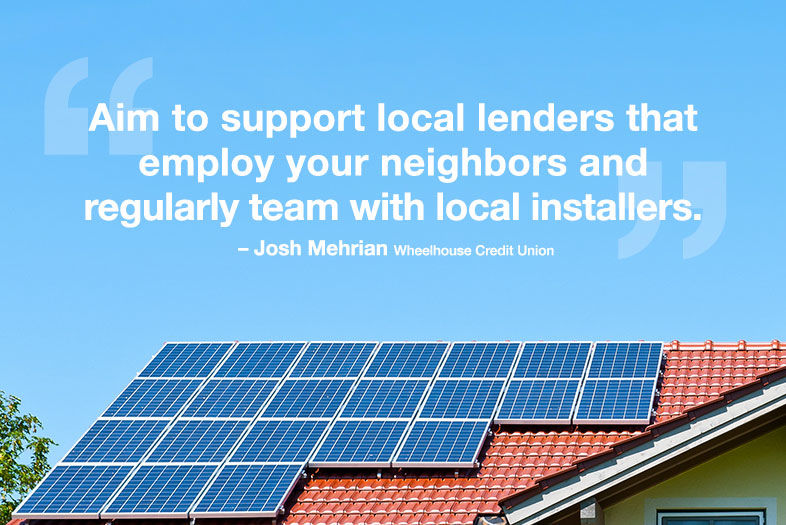Content provided by
Wheelhouse Credit Union
Solar loans allow homeowners to purchase solar panels, rather than enter into a solar lease or power purchase agreement (PPA), both of which should only be considered after extensive research and understanding. When homeowners purchase a PV System, the homeowner becomes the owners of that asset and directly benefits from state and local incentives. The most popular of those being the “Residential Renewable Energy” federal investment tax credit (ITC). Currently the credit is at 30% but will start to decline as of January 1st, 2020. By financing the purchase of a PV system, the project can move from proposal to installation with little to no money out of pocket and the homeowner can uncover immediate monthly cash flow in the form of savings off their utility cost. In addition to the cash flow, homeowners can utilize financing to maintain liquidity.
Before obtaining a solar loan, homeowners should consider these factors:
Think Local
San Diego is a community that supports alternative energy, and as a result, many businesses are thriving within the burgeoning industry. This is a leadership position that is benefiting the local economy as the money stays here. National lenders are often located in regions that do not have the same passion for renewables as San Diegans. Aim to support local lenders that employ your neighbors and regularly team with local installers. Choosing local literally pays for people that work and live in the community around you and have a vested interest in the economic health and vitality of our hometown.
Fixed Rates and Terms
The general economic consensus is that rates will go up over the next decade, so lock in rates while they are low. Seek a loan that provides the flexibility of re-amortization. Many homeowners choose to apply their first-year 30% tax credit to the principal balance and re-amortize payments for more monthly cash flow, or apply to the principal balance and keep monthly payments the same and pay the loan off sooner—thus paying less in interest over the life of the loan.
Fees Are Never Fun
Be mindful of pesky origination fees, which can sometimes be calculated as a percentage of a loan (some institutions charge as high as 3-6% of the loan amount). And you may bump into administration fees as well. Avoid a loan with an annual fee charged by the institution just to administer the loan, which can slowly transfer dollars from you to them over the term of the loan.
Embrace Cash
The average electricity bill in San Diego is about $310/month. As an example, a properly sourced loan can get your payment down to $200/month, which frees up $110/month. The average solar loan is 12 years. Beyond a monthly cash flow benefit, after the loan is paid off, the lifetime savings can be tens of thousands of dollars as your panels may last over 30 years; the majority of which you will likely have no electric bill and the loan payments are complete. With the positive cash flow, you can use that money to reinvest in a dividend bearing stock, high yield certificates, or investments in your home.
Look Out for Early Prepayment Penalties
Some institutions may charge a penalty if you pay early, or if you pay down your loan too much within the first year or two. Many of these are investment-based companies looking to earn a minimum yield for their investors, and as such will limit how much you can pay down and when you can do it. The penalties can range from $100-$200. Seek institutions and loans that do not have prepayment penalties.
Be Mindful of How Your Payments are Collected
Some finance programs offer the option of making your principal and interest repayment through your tax bill by working closely with the municipality, where they will collect their payment through the tax assessment. With this, one of the line items will become your solar loan bill. While convenient and not necessarily going to cost you more, be aware of the surprise: homeowners often forget and then get hit with a years’ worth of payments on their next tax bill.
Whenever you make a significant financial decision, you should consult with a financial advisor. But doing your own diligence, and being aware of the methods institutions utilize to lock you into a loan program that is not in your best financial interests is something you should be mindful of when choosing any financial partner.
Josh Mehrian is the Solar Lending Specialist for Wheelhouse Credit Union, the leading financer of solar loans in Southern California. Based in San Diego since 1934, Wheelhouse works with over 100 installers across Southern California. Learn more about your Solar Loan options at WheelhouseCU.com.

What to Consider When Shopping for a Solar Loan
Partner Content














